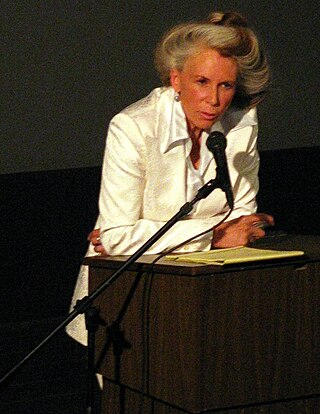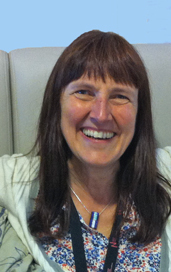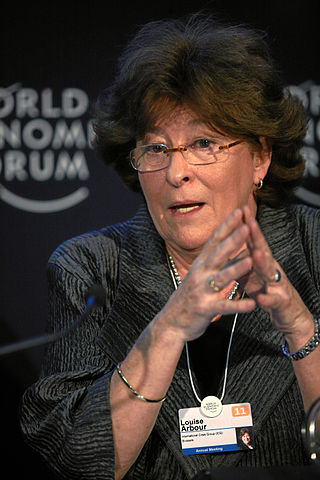Related Research Articles

Catharine Alice MacKinnon is an American feminist legal scholar, activist, and author. She is the Elizabeth A. Long Professor of Law at the University of Michigan Law School, where she has been tenured since 1990, and the James Barr Ames Visiting Professor of Law at Harvard Law School. From 2008 to 2012, she was the special gender adviser to the Prosecutor of the International Criminal Court.
Feminist legal theory, also known as feminist jurisprudence, is based on the belief that the law has been fundamental in women's historical subordination. Feminist jurisprudence the philosophy of law is based on the political, economic, and social inequality of the sexes and feminist legal theory is the encompassment of law and theory connected.The project of feminist legal theory is twofold. First, feminist jurisprudence seeks to explain ways in which the law played a role in women's former subordinate status. Feminist legal theory was directly created to recognize and combat the legal system built primarily by the and for male intentions, often forgetting important components and experiences women and marginalized communities face. The law perpetuates a male valued system at the expense of female values. Through making sure all people have access to participate in legal systems as professionals to combating cases in constitutional and discriminatory law, feminist legal theory is utilized for it all.

Mari J. Matsuda is an American lawyer, activist, and law professor at the William S. Richardson School of Law at the University of Hawaiʻi at Mānoa. She was the first tenured female Asian American law professor in the United States, at University of California, Los Angeles (UCLA) School of Law in 1998 and one of the leading voices in critical race theory since its inception. Matsuda returned to Richardson in the fall of 2008. Prior to her return, Matsuda was a professor at the UCLA School of Law and Georgetown University Law Center, specializing in the fields of torts, constitutional law, legal history, feminist theory, critical race theory, and civil rights law.
Drucilla Cornell, was an American philosopher and feminist theorist, whose work has been influential in political and legal philosophy, ethics, deconstruction, critical theory, and feminism. Cornell was an emerita Professor of Political Science, Comparative Literature and Women's & Gender Studies at Rutgers University the State University of New Jersey; Professor Extraordinaire at the University of Pretoria, South Africa; and a visiting professor at Birkbeck College, University of London. She also taught for many years on the law faculties of the University of Pennsylvania and of Cardozo Law School of Yeshiva University.
Robin West is the Frederick J. Haas Professor of Law and Philosophy emerita at the Georgetown University Law Center. West's research is primarily concerned with feminist legal theory, constitutional law and theory, philosophy of law, and the law and literature movement.

Toward a Feminist Theory of the State is a 1989 book about feminist political theory by the legal scholar Catharine MacKinnon.
Michael J. Perry is an American legal scholar, specializing in constitutional law, human rights, and law and religion.
The Feminism and Legal Theory Project is a project is to provide a forum for interdisciplinary feminist scholarship aimed at addressing issues relating to women and law. The project addresses the intersection of gender with issues relating to race, class, ability, and sexuality. The project nurtures scholars from around the world, bringing them together to study and debate a wide range of topics related to feminist theory and law.

Margunn Bjørnholt is a Norwegian sociologist and economist. She is a research professor at the Norwegian Centre for Violence and Traumatic Stress Studies (NKVTS) and a professor of sociology at the University of Bergen. Her research has focused on financial institutions, management and working life and later on gender equality, migration and violence. She has also worked as a consultant, a civil servant, served as an expert to the European Commission and been president of the Norwegian Association for Women's Rights.

Ann C. Scales was an American lawyer, activist, and law professor at the University of Denver Sturm College of Law from 2003 to 2012, where she taught in constitutional law, sexual orientation and the law, civil procedure and torts.
Zorica Mršević is a Serbian professor, jurist, researcher and human rights activist. She works in the field of human rights and feminism, at local and international levels.
In 2008, Martha Albertson Fineman established ‘The Vulnerability and the Human Condition Initiative’ (VHC) as an interdisciplinary theme of Emory University’s Laney Graduate School. The Initiative was initially supported by joint contributions from Emory's Race and Difference Initiative and the Feminism and Legal Theory Project. The VHC initiative first public session took the form of a roundtable discussion with Bryan S. Turner and Peadar Kirby. It was at this event that Fineman distributed her 2008 paper, ‘The Vulnerable Subject’ for early discussion. Various workshops, programs and publications have followed. Vulnerability: Reflections on a New Ethical Foundation for Law and Politics includes chapters by many workshop participants situating vulnerability in various philosophical traditions, on topics ranging from assisted reproductive technology, animals and economics.
Susan B. Boyd is a Canadian feminist legal scholar, the inaugural Chair in Feminist Legal Studies, and founder of the Centre for Feminist Legal Studies, and Professor Emerita at UBC. She conducts research in the fields of feminist legal theory, law and gender, law and sexuality, parenthood law, child custody law and law and social justice. In 2012, Professor Boyd was elected a Fellow of the Royal Society of Canada, in recognition of her international reputation as a leading socio-legal scholar.

Women in law describes the role played by women in the legal profession and related occupations, which includes lawyers, paralegals, prosecutors, judges, legal scholars, law professors and law school deans.
Janet Elizabeth Halley is an American legal scholar who is the Eli Goldston Professor of Law at Harvard Law School. Her work is influenced by critical legal studies, legal realism and postmodernism.
Ratna Kapur is a law professor and former director of the Center for Feminist Legal Research in New Delhi, India [1995–2012].

Ruth Halperin-Kaddari is an Israeli legal scholar and international women's rights advocate who is known for her work on family law, feminist legal theory, women's rights in international law, and women and religion. She was a member of the United Nations Committee on the Elimination of Discrimination against Women from 2006 to 2018, and was the committee's vice chair during several terms. She is Professor of Law at the Bar-Ilan University and is the founding Academic Director of the Ruth and Emanuel Rackman Center for the Advancement of the Status of Women. She is also involved in international academic collaborations on the theme of women, state, and religion, and participates in international litigations as an expert on Israeli family law.

Feminist interventions in the philosophy of law concern the examination and reformulation of traditional legal systems in order to better reflect the political, social, and economic concerns of women---which also includes various other minority and ethnic groups. Though it draws heavily from feminist legal theory, feminist interventions in the philosophy of law differs from the more common feminist jurisprudence as it also seeks to explain the justification that a government has in interfering with the lives of its citizenry. Accordingly, then, feminist interventions in legal philosophy specifically addresses the relationship and rationale between a judicial system's exercise of power and its effects on female citizens. While particular views vary greatly, most feminist interventions in the philosophy of law operate under a belief that many contemporary legal systems are predicated on patriarchal notions of masculinity that result in a system of deeply-rooted bias and inequality.
Linda McClain is the Robert B. Kent Professor of Law at Boston University School of Law, and was previously the Rivkin Radler Distinguished Professor of Law at Hofstra Law School. McClain's work focuses on family law, sex equality, and feminist legal theory. McClain has written extensively on topics related to family, gender, and constitutional issues.
Anna Maria Grear is an English academic, author, and political activist. Grear is the founder of several academic and activist organisations, including the Global Network for the Study of Human Rights and the Environment (GNHRE) and the Journal of Human Rights and the Environment, where she is editor-in-chief. Grear is adjunct professor of law at The University of Waikato, New Zealand and was Professor of Law and Theory at Cardiff University until August 31, 2023. She has written for such international newspapers as The Wire and Süddeutsche Zeitung.
References
- ↑ "Martha Albertson Fineman | Emory University School of Law | Atlanta, GA".
- ↑ "Martha Albertson Fineman | Emory University School of Law | Atlanta, GA".
- ↑ "Martha Albertson Fineman | Emory University School of Law | Atlanta, GA".
- ↑ Polikoff, Nancy D. (2000). "Why Lesbians and Gay Men Should Read Martha Fineman". The Journal of Gender, Social Policy & the Law. 9 (1): 167–176.
- ↑ Emory Law School: Martha Albertson Fineman
- ↑ Thomas C. Arthur and John Witte, Jr., "The Foundations of Law: Introduction", 54 Emory Law Journal, 1-375 (2005).
- 1 2 3 "Martha Fineman and the Feminism and Legal Theory Project" (PDF). law.emory.edu. September 2007.
- ↑ "The Feminism and Legal Theory Project | Emory University School of Law | Atlanta, GA".
- ↑ Emory Law School: Feminism & Legal Theory
- ↑ "Martha Albertson Fineman | Emory University School of Law | Atlanta, GA".
- ↑ "Martha Albertson Fineman". Archived from the original on November 8, 2007. Retrieved March 24, 2008.
- ↑ "Brian Leiter's Law School Reports".
- ↑ Eichner, Maxine (2005). "Dependency and the Liberal Polity: On Martha Fineman's The Autonomy Myth". California Law Review . 93. SSRN 668561.
- ↑ M. Fineman, "The Vulnerable Subject: Anchoring Equality in the Human Condition", Yale Journal of Law and Feminism, Vol. 20, No. 1, 2008
- ↑ Selberg, Niklas; Wegerstad, Linnéa (2011). "Interview with Professor Martha Albertson Fineman". Retfærd. Nordic Journal of Law and Justice . 34 (4): 4–19.
- ↑ Reilly, Niamh; Bjørnholt, Margunn; Tastsoglou, Evangelia (2022). "Vulnerability, Precarity and Intersectionality: A Critical Review of Three Key Concepts for Understanding Gender-Based Violence in Migration Contexts". In Freedman, Jane; Sahraoui, Nina; Tastsoglou, Evangelia (eds.). Gender-Based Violence in Migration. pp. 29–56. doi:10.1007/978-3-031-07929-0_2. ISBN 978-3-031-07929-0.
- ↑ State, Work, and Family: Constructing Equality
- ↑ Professor Fineman Awarded Prestigious Leverhulme Visiting Professorship Archived 2012-04-07 at the Wayback Machine
- ↑ Kalven Prize Winners Archived 2005-07-12 at the Wayback Machine
- ↑ Association Prizes Archived 2008-05-10 at the Wayback Machine
- ↑ Thomas C. Arthur and John Witte, Jr., "The Foundations of Law: Introduction", 54 Emory Law Journal, 1-375 (2005).
- ↑ "Lagboksutgivare och familjerättsexpert hedersdoktorer vid Juridiska fakulteten i Lund".
- ↑ "AALS Announces 2017 Section Award Winners".
- ↑ "Emory's Fineman wins Albany Law School's Miriam M. Netter '72 Stoneman Award | Emory University School of Law | Atlanta, GA".
- ↑ Brian Leiter Most Cited Law Professors by Specialty, 2000-2007
- ↑ "Brian Leiter's Law School Reports".
- ↑ "Vulnerability by Martha Albertson Fineman and Anna Grear". Archived from the original on December 4, 2013. Retrieved November 30, 2013.